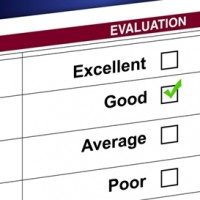Teachers are always looking for ways to improve the classroom, whether it's working with new technologies or implementing techniques to keep students engaged. Instructors are also constantly trying to find insight into the learning challenges students are facing. One such issue that educators may not be aware of could involve teaching styles and methods. It's hard for teachers to discover these difficulties because students are nervous about voicing their issues. However, student feedback can help a teacher realize what is and is not working in a classroom. It can also improve the learning environment by creating a sense of open communication, but teachers have to learn how to implement it.
Ways to ask for feedback
Surveys and assessments are natural parts of the college scene, but less so for kindergarten through 12-grade classes. Even at these younger grades, student feedback is important to teacher development, but an instructor doesn't need to pass out a survey to get useful comments.
We Are Teachers suggests simply asking students during or after a lesson, "How am I doing?" This could be the opportunity a child needs to let you know they have trouble hearing you from the back of the class. Another option for gathering observations is to have a routine feedback day. During this specific day, you can take a little time from class to let students know how they are doing and what needs improvement and then encourage them to do the same for you.
Asking for verbal feedback can be a little difficult for younger students, so try sending home a comments sheet with kids to their parents. Children might really want to help during story time or another activity but are too shy to ask, or maybe parents would like you to know their child needs more help in mathematics. Either way, the information received can help improve teaching methods and approaches.
How to take suggestions
Asking for feedback is always a challenge because someone is bound to write negative or spiteful comments on a form. When this happens, it can be hard not to take the reviews personally. Instead of seeing it as a personal failure or criticism, however, try to see the information as a means for growing and improving. The Centers for Research on Learning and Teaching suggest having a co-worker review the feedback with you so you have someone to discuss the comments with and determine what actions you can take to develop your teaching.
Instructors must also make sure they aren't trying to justify actions or methods in their heads. For instance, if someone writes, "Learning how to use sine and cosine is stupid," don't think, "Well, how else am I going to prepare you for the State Standards test?" Instead, consider giving examples to the class about why these formulas are important and how they can be used in the future.


No comments yet.